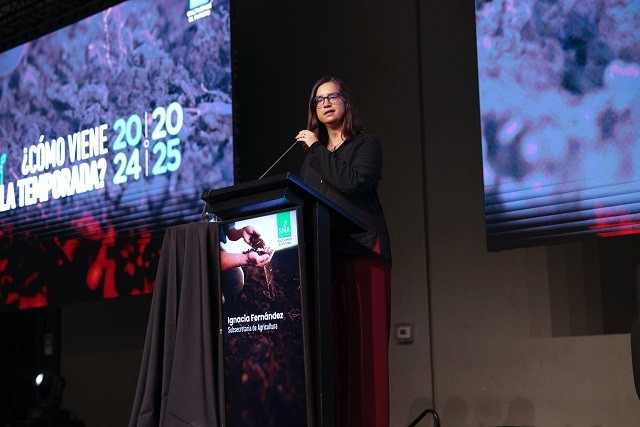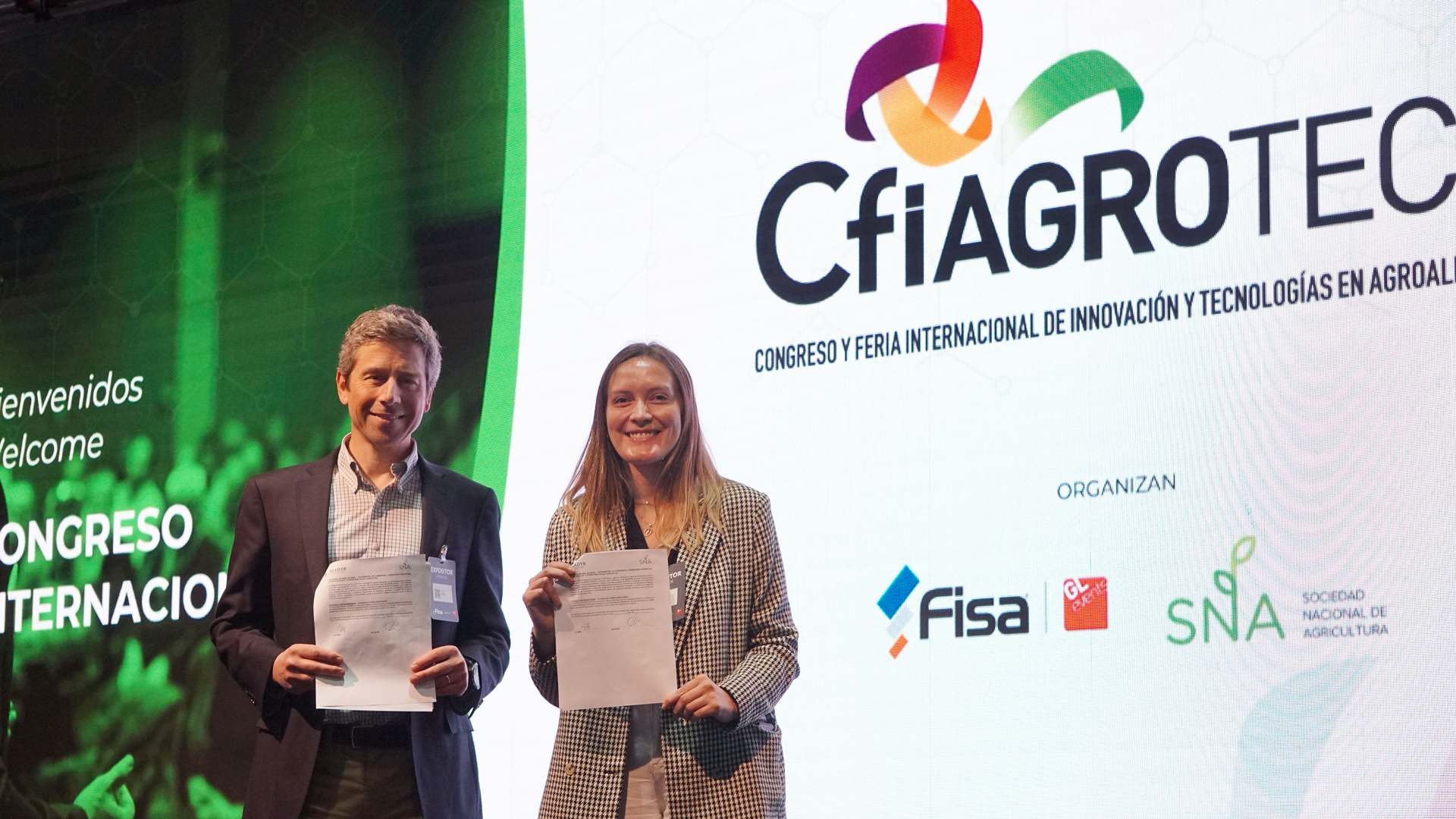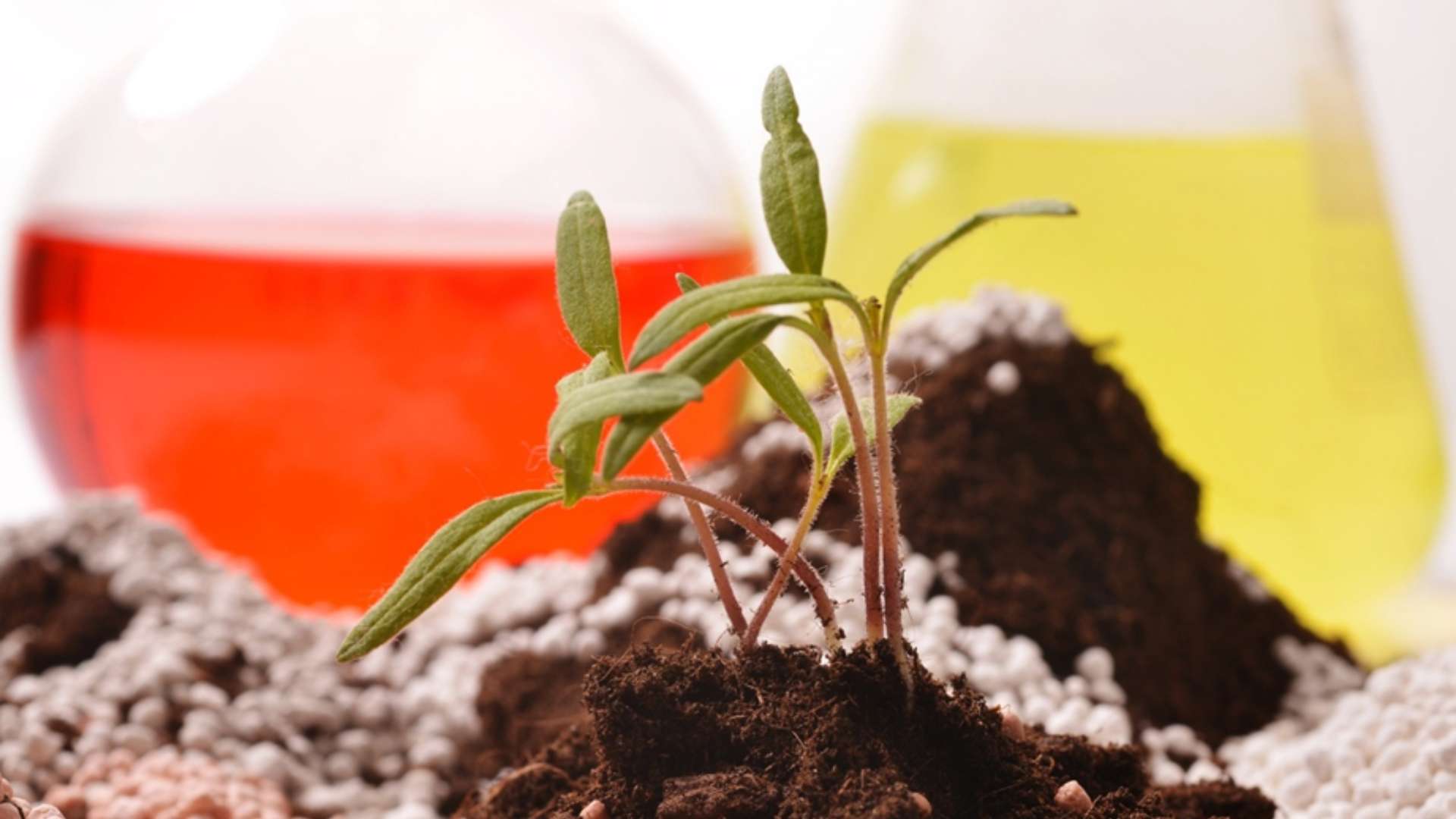
This morning, the Undersecretary of Agriculture, Ignacia Fernández, arrived at the Santiago Metropolitan Center to participate in the Seminar «How is the 2024-2025 season coming?», the annual event held by the National Society of Agriculture (SNA) to analyze the challenges and opportunities that the sector will face during this period. At the event, which brought together authorities, farmers’ confederations, representatives of wholesale markets and members of the SNA, Undersecretary Fernández presented the Ministry of Agriculture’s balance sheet and the main lines of the government’s program in this area. In this regard, she emphasized the improvement in the economy, highlighting the 4% drop in inflation, the increase in foreign investment and the 2.7% growth forecast for this year. He also referred to the provisional scenario for domestic agriculture, after complex years marked by the pressure of high fertilizer and energy costs. On the occasion, the authority also highlighted the achievements obtained thanks to the Sustainable Agro-export Competitiveness Agenda promoted by the Government of President Gabriel Boric during the second half of 2023 to diversify Chilean agricultural exports, the opening of a new Chilean agricultural attaché office in Vietnam and the opening of exports of fresh peaches and apricots to China, among other actions. In addition to the above, he highlighted the work done to strengthen food security in the country, through 80 actions, such as the new Irrigation Law and the strengthening of phytosanitary and zoosanitary protection. «The Government, through the Ministry of Agriculture, has challenges that are posed in three fundamental keys. The first is to strengthen productivity and competitiveness, always safeguarding sustainability, in addition to the adjustments imposed by climate change. The second is agroexport production versus production for the domestic market and a strong concern for food security and, from that perspective, domestic consumption,» said Undersecretary Fernández, adding that the third axis focuses on «rural development, with a comprehensive, innovative and proactive approach. All this is only possible by working together with the different sectors, generating and strengthening public-private alliances that allow us to build this vision of the future». The president of the National Agricultural Society, Antonio Walker, projected a better season than in the past and highlighted the positive performance of fresh fruit thanks to good production, favorable exchange rates and good prices. He also addressed the complications that some sectors are facing and the structural solutions proposed by SNA. «We know that their future opportunities far outweigh their current problems. It just depends on good policy and working together,» he said. He also referred to the crisis faced by wheat producers and the efforts being made to address this problem, and stressed the need to boost the promotion of Chilean wine in international markets. In this context, Undersecretary Ignacia Fernández also mentioned the challenges that require the Government’s commitment, such as the water crisis affecting the province of Limarí in the Coquimbo Region. In view of this situation, the authority explained that this week the delivery of animal feed and the execution of the Catastro de Afectación Silvoagropecuaria in the area began, to which will be added in the short term, the prospecting of wells, the deepening of existing wells and the search for groundwater. Finally, he highlighted the recent approval by the Chamber of Deputies of the law that creates the Incentive System for Sustainable Soil Management (SIGESS), designed to enable farmers to adapt to the effects of climate change and improve the properties of food-producing soils. Source: Portal del Campo.



 Noticias Relacionadas
Noticias Relacionadas Startups Agtech presentarán casos de éxito en conferencia CfiAgrotech 2023
Startups Agtech presentarán casos de éxito en conferencia CfiAgrotech 2023
 Desalación y reúso de agua abren un abanico de posibilidades para la agricultura chilena
Desalación y reúso de agua abren un abanico de posibilidades para la agricultura chilena
 Reducir, reutilizar, reciclar: el camino hacia la agricultura sostenible
Reducir, reutilizar, reciclar: el camino hacia la agricultura sostenible
